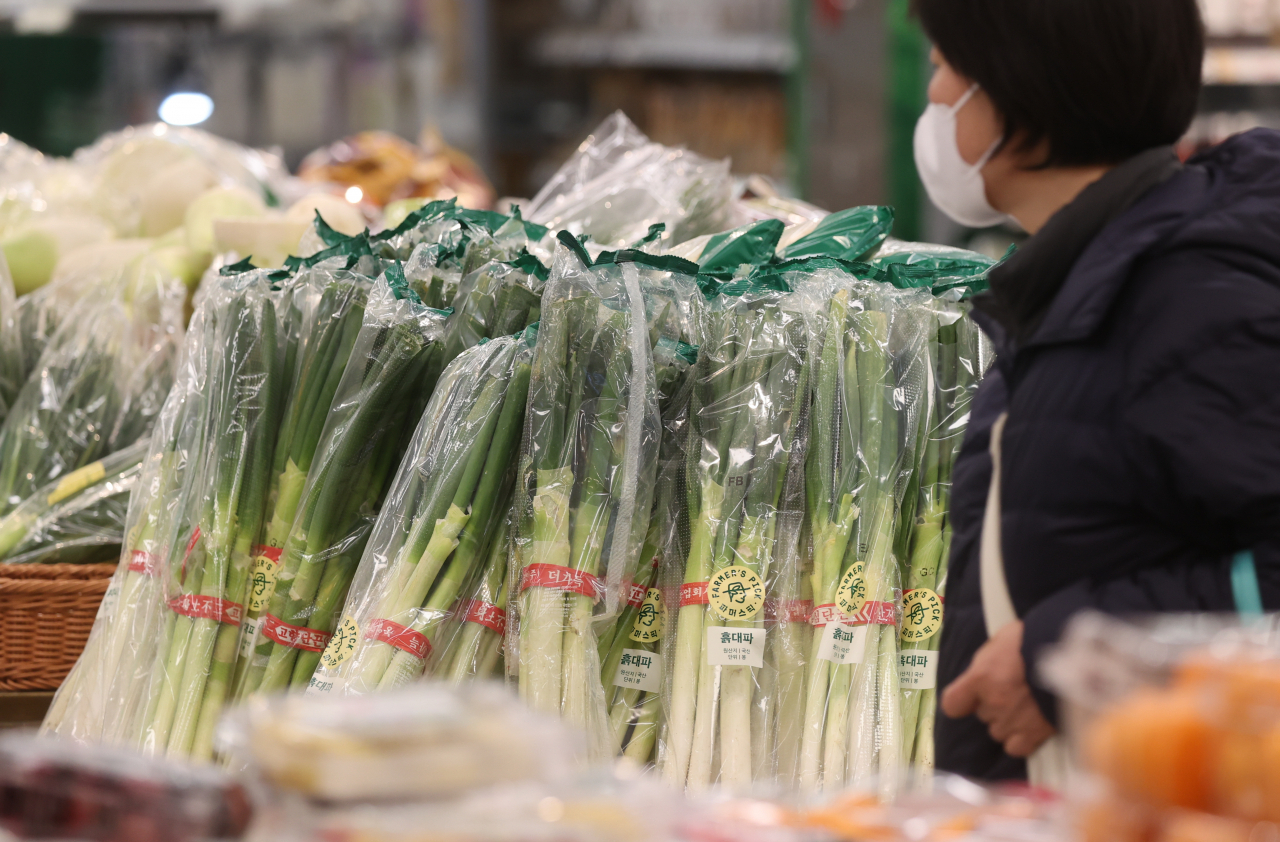
South Korea's on-year growth in consumer prices fell to the lowest level in a year in March, data showed Tuesday, in the latest signal that inflation could slow throughout this year.
Consumer prices, a key gauge of inflation, rose 4.2 percent last month from a year earlier, slowing from the rise of 4.8 percent tallied in February, according to the report from Statistics Korea.
It marked the lowest level since a 4.1-percent growth tallied in March 2022.
Inflation stayed above 2 percent -- the central bank's inflation target over the medium term -- for the 24th straight month in March.
The prices of utility services went up 28.4 percent on-year in March amid the prolonged war between Russia and Ukraine, which led to jitters in the global energy supply. The sector advanced by the same margin in the previous month.
South Korea depends heavily on imports for its energy needs.
The prices of agricultural, fisheries and livestock products rose 3 percent on-year in March, from a 1.1 percent growth tallied a month earlier.
Industrial product prices increased 2.9 percent on-year, led by higher bread and cosmetics costs. Those of gasoline and diesel, on the other hand, fell 17.5 percent and 15 percent, respectively.
Prices of services increased 3.8 percent on-year, due to higher insurance and housing management costs.
Core inflation, which excludes volatile food and energy prices, rose 4 percent on-year last month, expanding at the same margin as in February.
Prices of daily necessities -- 144 items closely related to people's everyday lives, such as food, clothing and housing -- climbed 4.4 percent on-year last month, slightly slowing from 5.5 percent tallied in February.
In February, the Bank of Korea kept the benchmark interest rate unchanged at 3.5 percent for the first time in 10 months as worries are growing that aggressive monetary tightening could hurt economic growth.
The central bank plans to hold another rate-setting meeting next Tuesday.
"Overall, the prices of agricultural products and personal services continued to rise, but the eased rise in oil prices led to the slowed growth (of consumer prices)," the Ministry of Economy and Finance said in a separate report, but it warned the uncertainties remain as core inflation is still high.
South Korea will continue to roll out various measures, including tariff-rate quota on food imports, to cope with inflation, it added.
The tariff-rate quota is a system under which products are imported with favorable duty conditions within a designated volume. (Yonhap)










![[Hello India] Hyundai Motor vows to boost 'clean mobility' in India](http://res.heraldm.com/phpwas/restmb_idxmake.php?idx=644&simg=/content/image/2024/04/25/20240425050672_0.jpg&u=)








